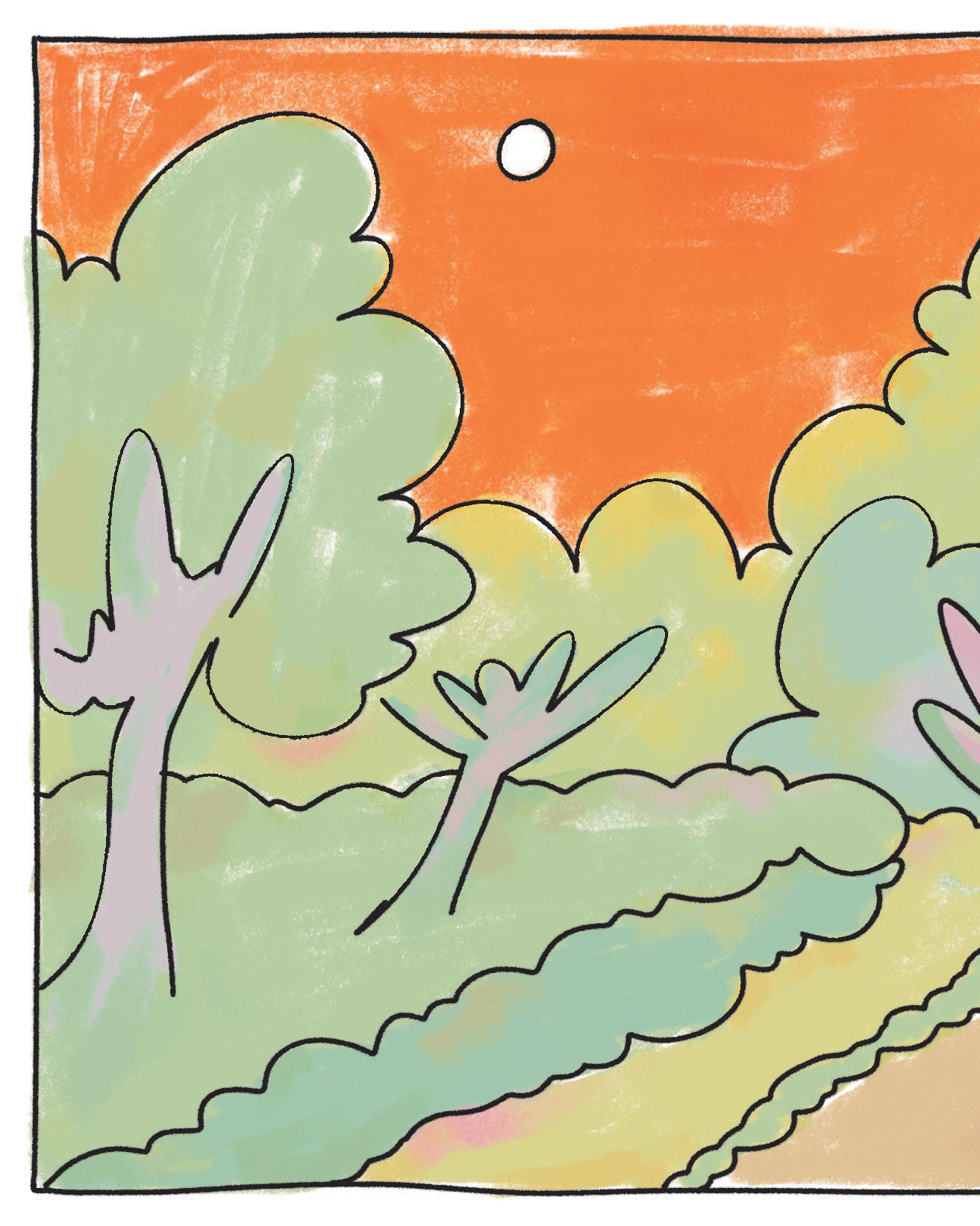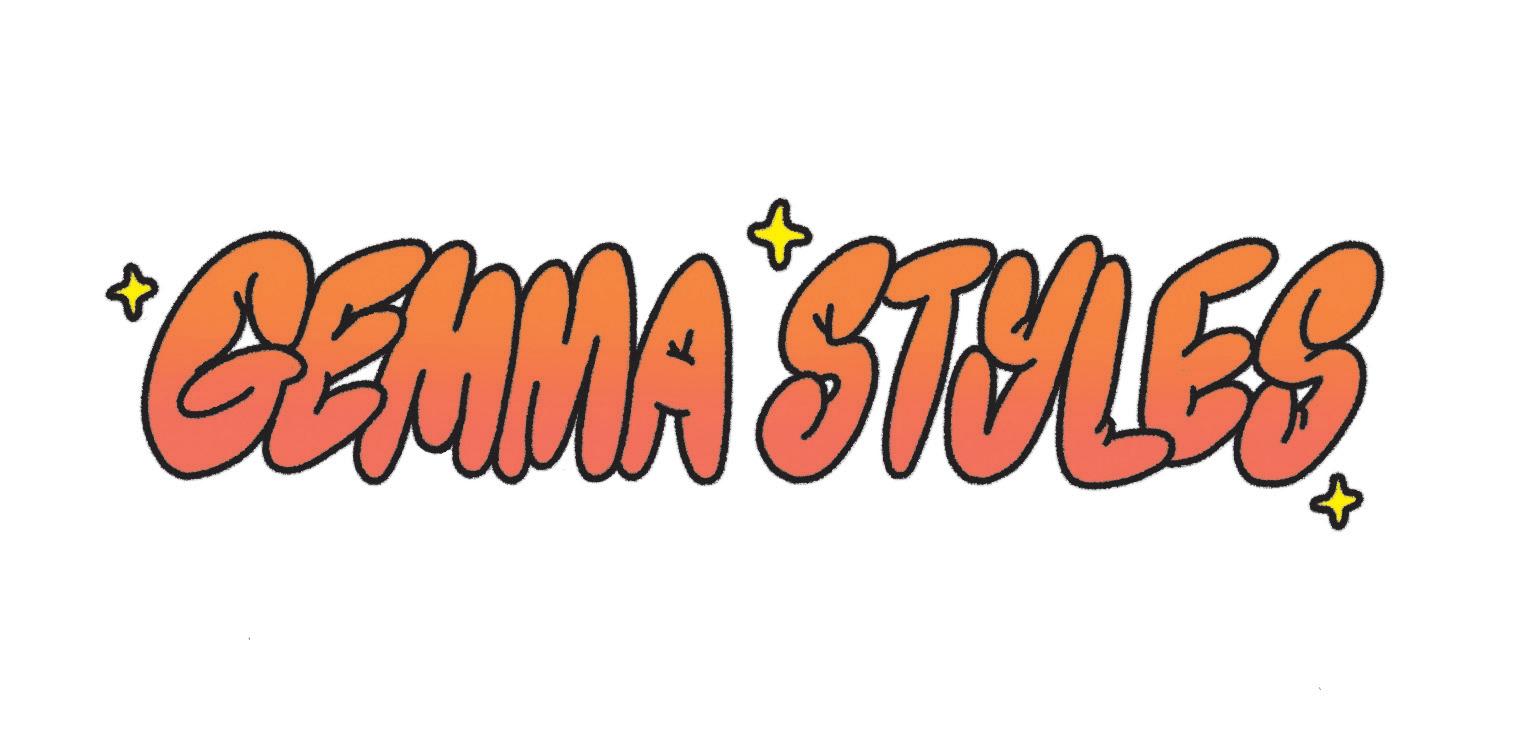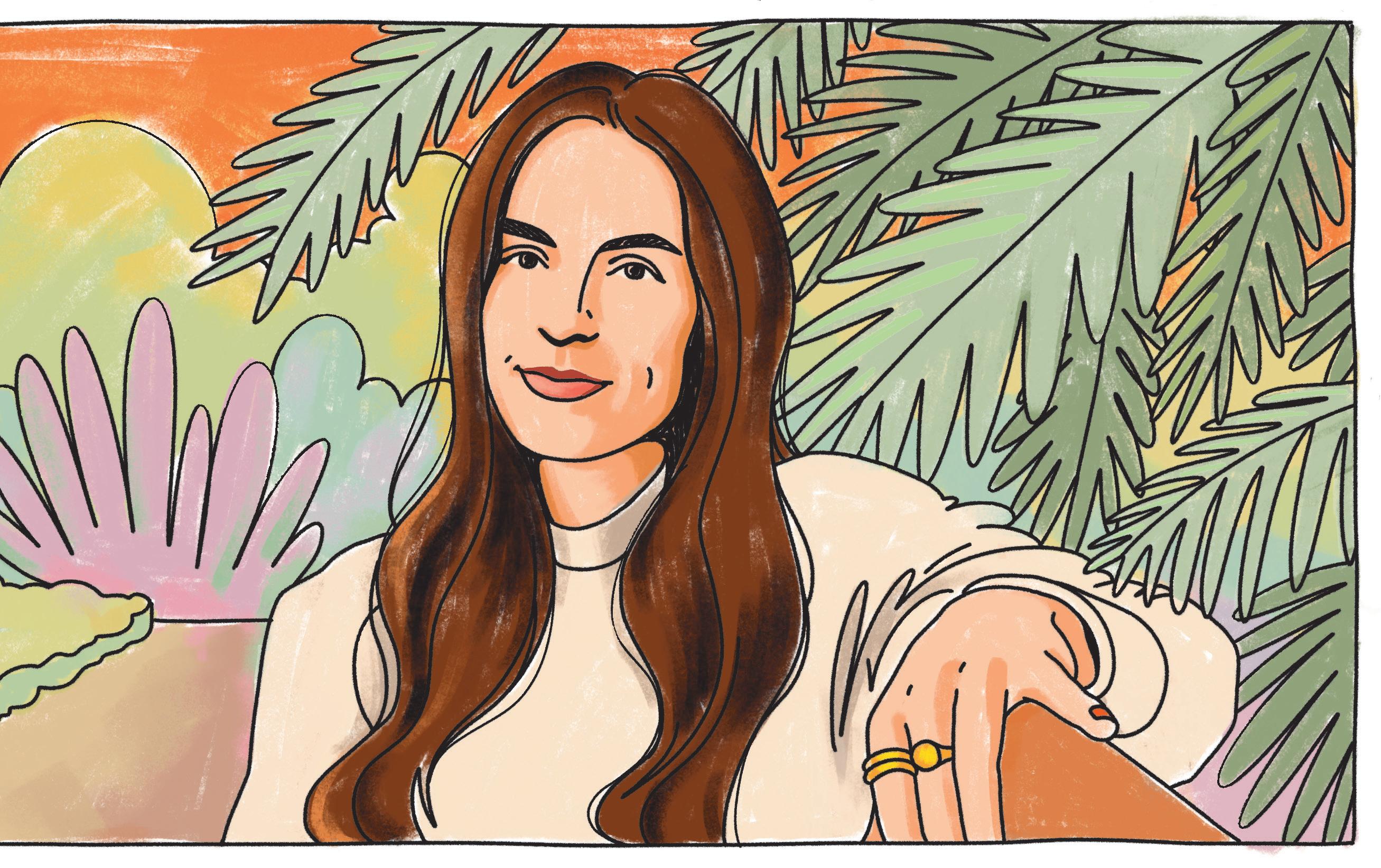
6 minute read
In Conversation With : Navigating Mental Health & Community Online
Gemma Styles is a writer, podcaster, and mental health advocate who uses her platform to help an audience of over 9 million learn about various social issues and use that knowledge to do good.
Her podcast “Good Influence with Gemma Styles” explores topics like feminism, climate action, housing insecurity, and more; all following a through-line of mental health, activism, and self-care in the digital age.
Gemma is a good influence herself, sharing authentic stories about living with ADHD (and all the fun mental health experiences that come with it) on her blog, pod, and
Kamrin Baker, Good Good Good: I’m so excited to have you today. We really admire you and all the work you do.
Gemma Styles: That’s so nice. I appreciate you having me. Thank you.
KB: Let’s jump right in! I’m curious how your platform online has helped you personally navigate your own mental health journey.
GS: There have been instances, especially several years ago now, where I would start talking about mental health and would have a really positive response from people. I do think it’s much easier now to think of people who talk about mental health, and it’s easier to talk about now, I would say.
I’m very aware that I say that as somebody whose mental health background is mainly in depression and anxiety. I know that’s not necessarily the case for other mental health conditions.
KB: That definitely makes sense. It also leads into my next question. You’ve talked a lot more in the last year about your diagnosis with ADHD. I’m also a late-in-life diagnosed ADHD person.
GS: Congratulations!
KB: Thank you, thank you. Can you tell me a little bit more about your experience as a woman with ADHD who
Instagram. Combining style (ha-ha) and action, she also has her own line of glasses — Gemma Styles Eyewear — some of which donate back to mental health research through her work as an ambassador with MQ Mental Health

I am truly delighted to have had the opportunity to chat with Gemma about her work in the mental health world, connect about being women with ADHD, and revel in the beauty of doing good together.
This interview has been edited for length and clarity. For the full version of this conversation, please visit ggg.news/articles/gemma-styles-interview was diagnosed later in life?
GS: One of the reasons it’s so affirming to get a neurodivergent diagnosis is because — especially as someone who’s diagnosed later in life — you have spent so many years just feeling quietly like there’s something wrong with you and looking at everyone existing and working and maintaining relationships and doing all of these things — and finding it really difficult and not understanding why.
It’s both funny and kind of frustrating now that I think back to conversations that I’ve had with a general practitioner and a therapist — I think I was on medication at the time — saying ‘I feel better, but I don’t feel like I think I’m supposed to feel like.’
So even just in that respect, I think there is something massively affirming about just having a diagnosis and kind of being able to understand yourself a little bit better.
Even just in the way that I speak to myself — and it’s still really frustrating, don’t get me wrong — but it’s a lot easier to beat myself up a little bit less. It’s not that I’m a useless, terrible, lazy human being. Actually, there is a reason why I find these things difficult. And even though that’s annoying, at least I know what it is now.
KB: Having the words to describe it is so empowering. Part of my ADHD experience was seeing content online that explained all these symptoms that prompted me to ask more questions. I think people are quick to maybe call it a trend right now when it’s often that we just have more information. How can we be more thoughtful about talking about mental health online?
GS: I mean, people can talk about ADHD being a trend, but I was diagnosed at the age of 31 and the symptoms and everything are things that I’ve been dealing with for the past 20 years. It was there. And I’m sure that’s the case for a lot of other people, too.
Equally, I think if you look at it statistically, there is an upward trend in the data of how many people are affected by mental health conditions. We don’t need to dismiss out of hand why we see mental health conditions becoming more prevalent, but you do have to maintain quite a level of nuance when you have these conversations.
KB: Yeah, we have to understand culturally and socially why people are experiencing these things. That being said, can you talk about why community is important to mental health?
GS: I think something that a lot of different people with different mental health conditions have in common is that it can just be really rubbish, and tiring, and boring, and lonely trying to deal with mental illness.
As much as there’s something to be said for tips and things, like ‘try this and try that, and like, oh, make a nice cup of tea and hang eucalyptus in your shower and do all of these, like, cute, Instagram-y things,’ there’s a space for that, but equally, a lot of it, it’s just not cute at all.
Sometimes you just feel so much better for hearing somebody mirror your experience and knowing that you’re not alone in it, even when you are alone in it in that present moment.
KB: Yeah, it reduces shame. It turns a lonely experience into a human experience, and I think that’s what’s so validating about it. Mental health is also very much at the intersection of a lot of activism and social justice work. How have you found that to be true?

GS: I think the reason why mental health seems to come into everything is because we — rightly more so in recent years — have been a little bit more kind of person-focused when we look at activism. I’m well aware that there are activists who have come decades before, but I think the kind of new niche of social media activists who grow a platform by talking about all these issues, they’ll talk more about burnout and climate anxiety and, you know, getting really bogged down and overwhelmed by the work that they do. It’s showing up and doing this incredible and really important work, but also then having the bravery to open up and say, ‘this is really hard.’
I know people are looking up to me thinking like, ‘oh, well, they know what they’re doing and they’ve got all the answers.’ But actually, this is really hard for me, as well.
And I’m just one person in this space. All of the people who are doing this work are also dealing with their own mental health.
I can’t end up doing an episode of the podcast without talking to someone about mental health as part of it, no matter what the topic is. Whoever you’re talking to about a particular topic is also a person who’s trying to deal with that topic.
I think that helps us connect to each other a bit more, hopefully makes these areas of activism and work feel a bit more accessible to people.
As much as we can put people on pedestals and look at the incredible work they’re doing, it does make them feel a bit unreal and a bit ethereal. Talking about mental health as part of these conversations makes you realize that they are just people and you’re also a person, which means you can also get involved and you can also be of use in all of these arenas.
KB: Aside from your podcast, what are some other projects you’re working on that uplift this work?
GS: I’m continuing to work with MQ Mental Health Research, which is a charity I’m an ambassador with. What I like to do as part of that is use my platform to inform people of the mental health research landscape and make people aware of how they can get involved. Whether that is through fundraising, or even working with studies by just filling out an online questionnaire.
You and I have been talking about ADHD and we’re both women who weren’t diagnosed as children, and that was possibly a reality for us because, as women, the data doesn’t reflect us as much. The further you cross into different intersections, the further people away are from the data set. So, for lots of different conditions and lots of different people, the more data we can have is only going to be a good thing because it will hopefully stop us from slipping through the net in the future.
KB: What is giving you hope these days?
GS: People. There are just so many lovely people who really care, and that genuine kindness and caring does make me feel really inspired in the face of a lot of the opposite going on in the world.
There’s that old saying, like ‘look for the helpers,’ and that genuinely does make me feel quite hopeful.







